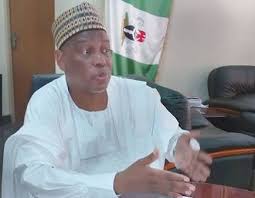Dr Hamid Bobboyi, Executive Secretary of UBEC, made this disclosure in an interview at the end of an interactive session in Abuja.
”The initiative would be a game changer.It will turn things around in terms of e-learning which in turn would enable learners to be at par with the 21st century digital world. The initiative is one of the milestones the commission has been able to reach particularly in terms of improving infrastructures”.
He noted that 13 states, which comprised the six geo-political zones, were at various stages of completion of the schools.
“The commission is looking into bringing on board other stakeholders like those at the senatorial zonal levels to push for more of the model schools. Eventually such a move will spread to the level where all the 774 Local Government Areas in the country will have the planned model schools”.
He further said the proposed schools which would be equipped with modern digital technological tools, would afford pupils the opportunity to use digital gadgets with a central server that would be provided.
Bobboyi added that upon completion of the schools, they would be in joint partnership with the state governments.
“The schools will be run in partnership with the commission for some time before handing them completely to the states”.
While addressing the issue of the intervention programmes, the executive secretary reiterated that the commission in the coming months planned to roll out a programme on building effective schools.
He said to actualise the plans, educational technology that would ensure building of a world class digital technology, digital platforms and digital skills for the teachers were required.
He added that involvement of communities and other stakeholders from the private sector was crucial for the long term success of the programmes and projects.
According to Bobboyi, the involvement of the community cannot be over emphasised because there is a worrisome trend of out of school children.
He noted that in the South East, there was an alarming rate of out of school male children, while in the North the girls were the majority of out of school children.
He said the male children from this part of the country were often sent to learn trade rather than going to school, at least to the basic level and basic education was needed for traders and artisans in order to enhance their abilities and their skills.
He equally said that education was the collective responsibility of everyone.
The executive secretary urged stakeholders including the media to get involved where “the handover note we will present will be better than the one we were given”.
In a separate interview, Dr Bala Zakari, Deputy Executive Secretary (Technical), said education was hard to provide, but necessary.
He said the issue of out of school children, quality of teachers and community involvement were cardinal issues.
According to Zakari, community involvement can be through the support of the commission by their interaction with the government and the National Assembly especially on issues like budget.
“This is where the community will come out to talk to the members of the National Assembly, that if the budget in education is not increased, it should not be cut either”.
Also speaking, Dr Isiake Kolawole, Deputy executive secretary(Services), said the cooperation of state governments and utilisation of the UBEC’s mandate in terms of implementation was key.
“Some states do not implement at all, some states as we speak have not accessed their 2017 and 2018 funds and some that have, the funds are being diverted”.

